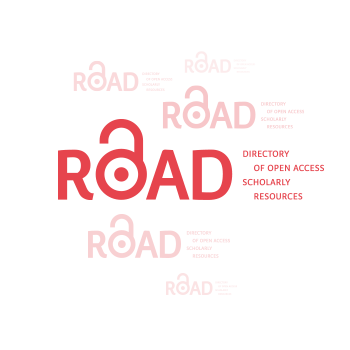Psychological-Academic Challenges: The Relationship Between Psychological Vulnerability and Academic Procrastination Among University Students
DOI:
https://doi.org/10.59994/pau.2025.3.105Keywords:
Psychological Vulnerability, Academic Procrastination, University StudentsAbstract
The study aimed to determine the level of both psychological vulnerability and academic procrastination among university students, to identify the relationship between psychological vulnerability and academic procrastination, and to explore the possibility of predicting academic procrastination scores from psychological vulnerability scores among university students; The descriptive method was used, and the study sample consisted of 375 students. The study tools included the Psychological Vulnerability Scale and the Academic Procrastination Scale, both prepared by the researcher. Descriptive statistics were used, including means, standard deviations, and weighted relative means. Correlation coefficients and simple regression analysis were also used. The study found a moderate level of psychological vulnerability and academic procrastination among university students, and a statistically significant positive correlation between psychological vulnerability and academic procrastination. The results also showed that psychological vulnerability significantly predicts academic procrastination. The scientific originality of this research lies in being one of the first studies—according to the researcher's knowledge—that addressed the relationship between psychological distress and academic procrastination among university students in the Arab environment, particularly in Egyptian universities, where this relationship has not been directly addressed in previous literature. This study, in addition to showing the correlation between the two variables, sought to test the predictive ability of psychological distress on academic procrastination, which enhances the practical dimension of the research in designing guidance programs for students. It also enriches the educational library in the field of educational psychology. The findings contribute to guiding the formulation of preventive and therapeutic guidance programs to reduce academic procrastination by developing psychological adjustment skills and enhancing psychological resilience among students.
Downloads
References
Abdel Aal, S. (2023). Nomophobia and its relationship with psychological vulnerability among students of the College of Early Childhood Education (In Arabic). Journal of Childhood Research and Studies, 5(10), 134 - 226.
Abdollahi, A., Farab, M.N., Panahipour, S., & Allen, K. A. (2020). Academic Hardiness as a Moderator between Evaluative Concerns Perfectionism and Academic Procrastination in Students. Journal of Genetic Psychology, 181(5), 365–374.
Al-Abisat, S. (2020). Academic procrastination and its relationship with self-efficacy among a sample of university students (In Arabic). Journal of the College of Education, College of Education, Tanta University, 78(2), 44 - 98.
Al-Ahmad, A., & Yassin, F. (2018). Academic procrastination and its relationship with self-confidence among a sample of psychology students in the Faculty of Education at the University of Damascus (In Arabic). Arab Union of Universities Journal for Education and Psychology, 16(1), 13-56.
Al-Ahmadi, S. (2018). Academic procrastination and its relationship with positive thinking and learning motivation among university students (In Arabic). Journal of the Faculty of Education: Tanta University - Faculty of Education, 72(4), 67-118.
Al-Atilat, O. (2020). Emotional intelligence and its relationship with academic procrastination among university students in Jordan (In Arabic). Journal of the College of Education, 78(2), 655 - 684.
Al-Azamat, O., & Bani, K. (2023). The predictive ability of self-disability on academic procrastination among Al al-Bayt University students. Journal of Al-Quds Open University for Educational and Psychological Research and Studies, 14(43), 221-237.
Al-Hajaj, H. (2014). Academic procrastination and its relationship with academic self-concept among university students (In Arabic). Unpublished master's thesis, Jordan, Zarqa, Hashemite University.
Ali, H. (2021). Despair and fear of failure as predictors of academic procrastination (In Arabic). Journal of Psychological Services, 14, 292 - 339.
Al-Jabjabi, Karima. (2023). Psychological vulnerability and its relationship with creative thinking among students of the Faculty of Dentistry at Dhamar University (In Arabic). Al-Bayda University Journal, 5(4), 854 - 870.
Al-Sarhan, M., & Suwaileh, M. (2015). Academic procrastination and its relationship with self-regulated learning among Al al-Bayt University students (In Arabic). Journal of Al-Quds Open University for Educational and Psychological Research and Studies, 5(17), 162-172.
Awaad, F., El Alfy, A., & Abu Zaid, N. (2023). Parental competence and its relationship with the psychological vulnerability of students at Ain Shams University. Journal of Education and Innovation Research, Ain Shams University, 8(8), 161-191.
Cavusoglu, C., & Karatas, H. (2015). Academic procrastination of undergraduates: Self-determination theory and academic motivation. The Anthropologist, 20(3), 735-743.
Dengal, A. (2022). Psychological vulnerability among a sample of university students, Egypt, a clinical study (In Arabic). Journal of the Faculty of Education in Qena, South Valley University, (53), 333-402.
Dradkeh, S. (2020). Academic self-efficacy and its relationship with academic procrastination and boredom among a sample of students from Northern Border University in light of some variables (In Arabic). Educational Sciences: Cairo University - Faculty of Graduate Studies in Education, 28(1), 351-396.
Eid, I. (2019). Academic procrastination: its prevalence and causes from the perspective of university students (In Arabic). The Jordanian Journal of Educational Sciences, 8(2), 131-149.
Elemo, A. S., & Dule, A. (2023). Investigating the link between procrastination, Big Three perfectionism and psychological vulnerability in academic staff. Personality and Individual Differences, (213), 112286.
Elias, R. Z. (2020). Procrastination and Its Relationship with Business Students' Cheating Perceptions. American Journal of Business Education, 13(1), 1-8.
El-Khawas, H. (2024). The narcissistic personality as a predictor of psychological vulnerability among a sample of university youth (In Arabic). Journal of the College of Education in Psychological Sciences, 48(3), 515 - 574.
Fadhli, M., Sudirman, S. A., & Kılınçer, H. (2021). An Investigation into the Self-Handicapping Behaviors in Terms of Academic Procrastination. International Journal of Islamic Educational Psychology, 2(2), 191–202.
Goroshit, M., & Hen, M. (2021). Academic procrastination and academic performance: Do learning disabilities matter?. Current Psychology, 40(5), 2490-2498.
Gün, F., Turabik, T., & Atanur Baskan, G. (2020). The relationship between academic self-efficacy and academic procrastination tendency: A study on teacher candidates. Hacettepe Egitim Dergisi, 35(4), 815–826.
Hong, S., & Ha, J. H. (2020). Classification and evaluation of defense mechanisms. Psychoanalysis, 31(1), 1-10.
Jabbar, M. (2017). Academic procrastination among students of the College of Education (In Arabic). Unpublished master's thesis, College of Education, Al-Qadisiyah University.
Jamaati, N. (2021). Attachment styles and psychological vulnerability among academically non-adaptive adolescents and their relationship with their guidance needs (In Arabic). PhD thesis, Faculty of Humanities and Social Sciences, Batna University, Algeria. https://2u.pw/ARrqw
Karataş, A., & Akar, H. (2025). Academic procrastination behavior, test anxiety and self-handicapping as predictors of academic achievement. International Journal of Scholars in Education, 8(1), 59-80.
Khalil, M. (2017). Academic procrastination and its relationship with motivational orientations (intrinsic and extrinsic) and self-confidence among education college students. Journal of the Faculty of Education, Assiut University, 33(2), 157-195.
Kiamarsi, A., & Abolghasemi, A. (2014). The relationship of procrastination and self-efficacy with psychological vulnerability in students. Procedia-Social and Behavioral Sciences, 114, 858-862.
Klassen, R. M., Tze, V. M., & Hannok, W. (2013). Internalizing problems of adults with learning disabilities: A meta-analysis. Journal of learning disabilities, 46(4), 317-327.
Ma, Y., Yang, X. M., Hong, L., & Tang, R. J. (2022). The Influence of Stress Perception on Academic Procrastination in Postgraduate Students: The Role of Self‐Efficacy for Self‐Regulated Learning and Self‐Control. International Journal of Digital Multimedia Broadcasting, 2022(1), 6722805.
Mahboub, H. (2023). Cyberbullying thru social media platforms as a predictive indicator of negative psychological rebellion and psychological vulnerability among Umm Al-Qura University students (In Arabic). Islamic University Journal of Educational and Psychological Studies, 31(5), 205 - 234.
Ngo, C. G. A., Baptista, C. C. B., Caballero, H. C. L., & Lorejo, C. B. (2025). Procrastination And Self-Esteem as Predictors of Self-Handicapping Among Dean’s Listers. European Journal of Education Studies, 12(6), 118-141.
Nogueira, M. J., Barros, L., & Sequeira, C. (2017). Psychometric properties of the psychological vulnerability scale in higher education students. Journal of the American Psychiatric Nurses Association, 23(3), 215-222.
Nogueira, M. J., Sequeira, C., & Sampaio, F. (2022). Gender differences in mental health, academic life satisfaction and psychological vulnerability in a sample of college freshmen: a cross-sectional study. Journal of Gender Studies, 31(8), 895- 904.
Pyman, D. (2020). Academic procrastination, self-regulation, anxiety, and personality (ASAP):‘Some’day is not a day of the week. (Doctoral dissertation, Master’s Thesis, Trent University]. Trent University Library & Archives.
Qona’ah, A., Rachmawati, S., & Chan, C. (2020). Families’ psychological fragility during an emergency. International Journal of Psychosocial Rehabilitation, 24(7), 9064-9071.
Rožman, M., Vrečko, I., & Tominc, P. (2025). Psychological Factors Impacting Academic Performance Among Business Studies’ Students. Education Sciences, 15(2), 121.
Sakran, E. (2010). The factorial structure of academic procrastination behavior, its prevalence, justifications, and its relationship with achievement levels among secondary and intermediate school students in the Asir region of the Kingdom of Saudi Arabia (In Arabic). Journal of the College of Education in Ismailia, 16, 1-70.
Sastri. P, D. (2022). Academic Procrastination in students and how to overcome it. Journal of Business and Management INABA (JBMI), 1(02), 89–96.
Satici, S. A., & Uysal, R. (2017). Psychological vulnerability and subjective happiness: The mediating role of hopelessness. Stress and Health, 33(2), 111-118.
Silveira, S., Hecht, M., Matthaeus, H., Adli, M., Voelkle, M. C., & Singer, T. (2022). Coping with the COVID-19 pandemic: perceived changes in psychological vulnerability, resilience and social cohesion before, during and after lockdown. International journal of environmental research and public health, 19(6), 3290.
Taleb, H. (2014). Emotional intelligence and its relationship with both compassion fatigue and self-compassion among practicing clinical psychologists (In Arabic). PhD thesis, Faculty of Humanities and Social Sciences, Sétif 1 University, Algeria.
Temel, V., Nas, K., & Dalkilic, M. (2020). Positive Perception and Psychological Vulnerability Levels of Academicians during COVID 19 Quarantine Period. African Educational Research Journal, 8(4), 876-883.
Uysal, R. (2015). Social competence and psychological vulnerability: The mediating role of flourishing. Psychological Reports, 117(2), 554-565.
Wareth, I. H. A., & Tawfiq, M. A. H. (2024). Self-Defeat and Psychological vulnerability as Predictors of Psychosomatic Disorders: In Light of Climate Changes Among University Students in Egypt and the Emirates. In Global Perspectives on Climate Change, Social Resilience, and Social Inclusion (pp. 131-152). IGI Global Scientific Publishing.
Yamaguchi, S., Kawata, Y., Murofushi, Y., Shibata, N., & Ota, T. (2022). Psychological vulnerability associated with stress coping strategies in Japanese university athletes. Journal of Clinical Sport Psychology, 17(4), 449-463.
Zhang, X. M., Chen, K., Wang, M. F., & Chen, C. M. (2022). The Relationship between Academic Procrastination and Internet Addiction in College Students: The Multiple Mediating Effects of Intrusive Thinking and Depression-Anxiety-Stress. Psychology, 13, 591-606.
Downloads
Published
How to Cite
Issue
Section
License
Copyright (c) 2023 Journal of Palestine Ahliya University for Research and Studies

This work is licensed under a Creative Commons Attribution 4.0 International License.
مجلة جامعة فلسطين الاهلية للبحوث والدراسات تعتمد رخصة نَسب المُصنَّف 4.0 دولي (CC BY 4.0)











